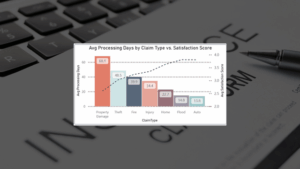What to Consider Before Hiring a Data Engineer
These days, finding data to drive actionable insights isn’t always the problem for businesses. After all, data is already plentiful with volume ballooning so much that more than one-third of business data is reportedly left unused. Instead, the challenge is building systems to efficiently manage, transform, and structure data so you can use it to glean actionable insights.
This is why data engineers are in high demand—and growing. According to Dresner Advisory Service’s 2025 Data Engineering Report, 81% of respondents call data engineering “critical” or “very important” for business growth—a 5% increase from 2024 and a 21% increase from 2022.
Data engineers design, build, and maintain the data pipelines and infrastructure that can turn raw data into actionable insights at scale. Without a competent data engineer, most businesses won’t be able to put their data to use for smarter decision-making that drives their business forward.
But hiring the right data engineer is no easy task. What exactly does a data engineer do? What skills should you prioritize when preparing to hire a data engineer, and what red flags should you watch out for?
Here’s a closer look at what to consider before hiring a data engineer, including key responsibilities, ideal traits, top interview questions, and red flags to avoid.
What Does a Data Engineer Do?
A data engineer designs, builds, and maintains the pipelines and systems that collect, process, and store your organization’s data. Ultimately, a data engineer succeeds when these systems deliver clean, accessible, and reliable data to your analysts and researchers so they can put that data to work.
Here’s a breakdown of a data engineer’s main responsibilities:
1. Data Pipeline Development
“Pipeline” is a catch-all term for the software-based systems that move data from various sources into more centralized storage platforms, like databases or data warehouses.
To design an effective pipeline, a data engineer must:
- Assess your organization’s unique data sources, volumes, and formats
- Choose the right architecture (batch, real-time, or hybrid)
- Select appropriate ETL/ELT tools and integration frameworks
- Implement data orchestration to manage dependencies and flow
- Ensure pipelines are scalable, maintainable, and resilient to failure
Done right, this pipeline will become the backbone of your organization’s data infrastructure, delivering clean, timely, and accessible data to drive strategic decision-making.
2. Data Cleaning and Transformation
Even the most sophisticated pipeline can’t generate business-ready insights if the data it carries is messy, e.g., inconsistent, incomplete, or inaccurate.
That’s why a good data engineer does more than just move data—they also clean and transform data, turning raw inputs into reliable, structured datasets ready for analysis.
For example, to clean and transform data, a data engineer might:
- Remove duplicates, null values, and corrupt records
- Standardize formats across disparate systems (e.g., dates, currency, naming conventions)
- Resolve data type mismatches and schema inconsistencies
- Enrich data through calculated fields or external sources
- Convert unstructured inputs into structured formats (e.g., parsing JSON or text logs)
Here, data engineers play an important role in data quality, ensuring analysts get the structured data they need to generate meaningful insights.
3. Data Infrastructure Management
Once data pipelines are in place, a data engineer turns their attention to data infrastructure.
Whether your organization’s systems are on premises, in the cloud, or hybrid, your data engineers must configure, maintain, and optimize data infrastructure to ensure performance and scalability that can support evolving demands.
Specifically, a data engineer:
- Monitors system health and performance
- Troubleshoots bottlenecks to minimize downtime
- Automates workflows and alerts
- Implements infrastructure-as-code practices
- Ensures high availability and disaster recovery plans are in place
With a data engineer reliably optimizing your data infrastructure, you can have confidence your systems will be fast, reliable, and ready to keep pace with your business’s evolving needs.
4. Security and Governance Implementation
A data engineer’s work doesn’t end with designing pipelines and optimizing infrastructure; they also play an important role in data security.
To ensure your organization’s data infrastructure is secure, trustworthy, and reliable, a data engineer must take steps to reduce compliance risk, improve trust, and maintain long-term data integrity. This may include:
- Implementing access controls and user authentication policies
- Encrypting sensitive data at rest and in transit
- Logging and auditing data activity for compliance purposes
- Supporting data governance practices, e.g., data lineage, metadata tagging, and classification
- Helping ensure alignment with regulations, e.g., GDPR, HIPAA, or SOC 2
5. Testing, Monitoring, and Refining
Systems don’t run on auto-pilot—data engineers must ensure those systems continue to perform even as your organization grows and develops.
For this reason, data engineers are also responsible for ongoing testing, monitoring, and refining, such as:
- Running data validation and quality checks
- Benchmarking performance and identifying bottlenecks
- Testing usability with downstream teams to ensure data meets real-world needs
- Refining transformations or pipeline logic as business requirements evolve
- Adding automation to reduce manual maintenance over time
With this continuous improvement loop, data engineers can catch issues early, improve accuracy, and adapt infrastructure over time to ensure your data systems remain trustworthy, efficient, and aligned with your organization’s strategic goals.
What Are the Characteristics of a Great Data Engineer?
A high-quality data engineer pairs technical prowess with soft skills and business context awareness.
Basically, they should lean on strong communication to collaborate with both technical peers and non-technical stakeholders and then use that input to build data pipelines and infrastructure that deliver reliable, clean data to support your organization’s business functions.
In this way, a great data engineer should combine technical fluency, thoughtful problem-solving, and cross-disciplinary communication to design and support usable data systems that drive efficient decision-making.
If you’re considering hiring a data engineer, prioritize these traits in your candidate search:
1. Demonstrated Technical Proficiency
Most data engineers have an educational background in computer science, software engineering, or other related fields. But at the end of the day, what matters most is their hands-on technical experience.
For example, a seasoned data engineer should have experience with and/or working knowledge of:
- Programming languages: SQL, Python, Java, C#
- ETL tools: Azure data factory, SSIS, informatica,
- Cloud platforms: AWS, Azure, GCP
- Data storage engines: RDBMS, OLAP
2. Creative Problem-Solving Skills
A good data engineer does more than follow strict technical instructions—they know how to solve complex, ambiguous problems and use critical thinking to adapt, troubleshoot, and optimize, even under pressure.
For instance, depending on your organization’s data sources, growth plans, and current technical stack, a data engineer may need to figure out how to integrate incompatible systems, design a scalable architecture with only limited resources, or resolve issues like latency and data duplication on the fly.
These challenges require a flexible mindset and a strong grasp of both technical and business implications. Down the line, your data engineer’s ability to design and implement sustainable solutions will significantly influence your organization’s ability to scale and remain competitive.
3. An Adaptive Communication Style
Data engineers work at the intersection of technical systems and business functions, which means their ability to communicate across diverse teams is as critical as their technical background.
Consider: As they plan, build, and optimize infrastructure, your data engineer is tasked with translating non-technical business needs into infrastructure requirements—and then translating technical trade-offs back into language a broader, non-technical audience can understand and act on.
This requires a keen understanding of who your audience is, as well as the ability to listen actively, ask the right questions, and explain ideas clearly so your organization can make confident, informed, truly data-driven decisions.
3 Main Challenges in Hiring a Data Engineer
Hiring the right data engineer isn’t always a straightforward path—even when you have a clear idea of what you need.
For one, the role of data engineer continues to evolve and often overlaps with those of data analysts and data architects. Plus, the market to hire and retain high-quality data engineers is competitive, particularly for small- to mid-sized businesses with limited resources.
If you’re considering hiring a data engineer, pay attention to these three challenges:
1. Evolving Requirements and Unpredictable Needs
The role of a data engineer is dynamic and fast-changing—and so are its job requirements. This makes it challenging for hiring managers to find data engineers who aren’t just a fit for their organization today but can continue to be several years down the line. After all, you may know your organization needs help building data infrastructure, but do you know what support you’ll need in five years?
According to market research and business consulting firm MarketDigits, the value of the big data and data engineering services market is expected to swell from $77.5 billion in 2024 to a mega $338.5 billion by 2023. But it can be hard to know what those investments will require in terms of talent.
This kind of ambiguity is especially common for small- and mid-sized businesses that are growing fast and don’t yet have mature data strategies. Ultimately, it makes it harder to write job descriptions and find talent that matches the evolving needs of your business.
2. Difficulty Evaluating Candidates’ Technical Skills
Even experienced hiring managers can struggle to correctly assess technical talent if it’s outside their domain of expertise. This is especially true for highly specialized tech roles like data engineering, where practical skills often go far beyond what’s listed on the resume.
This challenge is only made worse by the persistent tech skills shortage; despite scores of layoffs making the news, 95% of technology leaders report difficulty hiring top talent, with almost two-thirds (62%) saying their department’s skills gap actually widened over the last year.
For hiring managers and HR teams on the hook for bringing in top tech talent, finding the right data engineer can be like finding a needle in a haystack. Looking for relevant certifications (e.g., SQL, ETL frameworks, etc.) can help sift through resumes, while knowing a bit of the basics can make early conversations more productive. But to best assess potential data engineers, it’s a good idea to consult with your internal data team to get a clear picture of role-specific requirements.
Finding a Data Engineer with Business Acumen
Even if you do find a data engineer with comprehensive technical knowledge, there’s no guarantee they also have the necessary business acumen to tackle the full range of a data engineer’s duties.
Remember that a data engineer’s work doesn’t end with building pipelines. They also need to be able to understand the broader context of their work, communicate clearly with non-technical teams, and adapt to changing priorities without losing sight of strategic goals.
If your data engineer lacks these more tangible, soft skills, it can lead to very real, very tangible challenges for your business. In fact, a new study of 2,000 knowledge workers reveals poor collaboration results in hours of wasted time to rehash project requirements and redo work.
Data engineering may be a highly technical position, but it also requires a candidate with situational awareness and interpersonal skills to intelligently collaborate and strategically prioritize in a diverse business environment.
Top 3 Interview Questions to Ask When Hiring a Data Engineer
Hiring the right data engineer requires more than simply finding someone who can code. Your organization needs a data engineer who can build reliable, scalable systems, think on their feet to solve problems, and communicate across diverse teams.
Use these three data engineer interview questions to help you choose the right candidate:
1. Can you walk me through a data pipeline you built, including tools, challenges, and solutions?
This question gives you a look at how a candidate approaches real-world engineering work from start to finish. It also reveals how they think under pressure, collaborate across teams, and adapt when things don’t go as planned.
Pay specific attention to how they describe the challenges they encountered and the steps they took to overcome them. A strong candidate will offer a clear, structured explanation, breaking down exactly what went wrong and how they solved it—not just rattling off a list of tools and buzzwords.
2. How do you ensure data quality and reliability when you build new systems?
Data quality is obviously foundational to the success of any data infrastructure—so you want to be sure a candidate takes it seriously. Specifically, this question helps you assess how they approach accuracy, consistency, and usability.
Look for a step-by-step approach to data quality. Ideally, the candidate will cover validation, monitoring, and testing. It’s also a good sign if they touch on specific methods, like schema enforcement, automated alerting, or system benchmarking; you want a data engineer who will catch issues early, prevent bad data from spreading, and keep systems aligned with your organization’s evolving priorities.
3. Can you tell me about a time you had to explain a technical problem to a non-technical stakeholder? What did you say?
This question is a bit unusual—and should put your candidate on the spot, forcing them to reflect on not just what they did but how they communicated it in a way others could understand and act on.
A strong candidate will be able to simplify technical issues without dumbing them down, adjusting their language for different audiences and keeping cross-functional teams aligned even if things go wrong. Listen for examples that show empathy from the data engineer’s perspective and an ability to bridge technical and business priorities with clear communication.
3 Red Flags When Hiring a Data Engineer
Some data engineers may submit a strong resume, but that doesn’t necessarily mean they’re the right fit for your business. While not everyone has killer interview skills, they’re still one of the best opportunities you have to catch mismatches early.
As you talk to candidates, keep an eye out for these red flags when hiring a data engineer:
1. They Talk Tools, Not Strategy
It’s easy for candidates to list different tools they have experience with. But if they can’t explain why they prefer a certain tool over others or how one platform helped them solve a particular problem (like reducing latency or simplifying transformation), then it could be a sign they’re missing a more strategic mindset.
A strong data engineer should be able to walk you through the reasoning behind their design choices. If they can’t tie choices to real constraints or outcomes, then they may be operating on habit—not intent. For your organization, there’s a risk they might build based on convenience and comfort level instead of aligning systems with your specific requirements and goals.
2. They Struggle to Describe a Real Problem They’ve Solved
If a data engineering candidate can’t give an example of a time they improved pipeline performance, untangled messy source data, or resolved a critical failure under pressure, then this could be a sign they don’t have enough experience to be your data engineer.
It’s true that experience isn’t everything; you can still hire a solid newbie data engineer who can learn quickly, ask the right questions, and grow with your business. But at the same time, you don’t want a data engineer who’s going to add (or create) new problems for your business.
During the interview, watch out for vague answers like “my team handled that” that suggest the candidate may not have been actively involved in the problem-solving. After all, you want to hire a data engineer who steps up when things go sideways, takes accountability, and walks away with lessons learned.
3. They Don’t Think About Who Uses the Data
If a candidate describes their role as simply “moving data” or focuses entirely on the technical pipeline without mentioning other stakeholders, then that’s a sign they don’t fully understand a data engineer’s strategic role in your business.
You want to hire a data engineer who thinks beyond infrastructure and considers how data will actually be used across your organization to drive real-life decisions.
Whether that’s powering dashboards for sales or feeding models for marketing, a data engineer’s real job is to make data usable, not just available. If they don’t ask about use cases or can’t describe how their work impacts business outcomes, they may be building in a vacuum.
How Much is a Data Engineer Paid?
A data engineer’s salary can vary widely depending on their experience, education, and even location. For example, if your business is in a tech hub like the Bay Area, then you face stiff competition for data engineers, and have to be willing to pay up for top talent.
That said, the national average base salary for a data engineer is around $125,000. Once you factor in benefits and other perks, that compensation can look more like $150,000.
Why is it Hard to Find a Great Data Engineer?
With more organizations turning to data for real-time insights and automation, demand for data engineers is surging. CIO named data engineers among their “10 most in-demand tech jobs for 2025,” while Business Insider called it out as one of the most critical roles in business.
Unfortunately, the supply for data engineers isn’t quite keeping pace with the demand. In fact, 87% of tech leaders agree “finding skilled IT and tech talent to support business priorities is harder than ever.” This shortage is especially pressing in the data engineering industry, where hands-on experience is often more valuable than academic credentials.
For small- and mid-sized companies, the challenge is even steeper. Compared to large-scale enterprises with impressive salaries and flashy benefits, it’s hard for smaller teams to attract and retain the top data engineering talent you need.
What Happens if You Hire the Wrong Data Engineer?
A competitive data engineering market can make it tempting to move quickly and hire whomever seems like a close-enough fit for your organization. But data engineering is foundational to your business’s success, so it’s worth taking the time to get it right.
If you hire the wrong data engineer, you risk facing problems like:
- Unreliable Pipelines: Poorly designed or maintained pipelines can break under pressure, leading to delayed access, data loss, or unexpected downtime that can destabilize your organization’s entire operations.
- Technical Debt: Bad data engineering work may not show up immediately, but when it does, the effects are long-lasting. Over time, all of these errors add up to expensive “technical debt,” i.e., expensive, hard-to-fix problems that limit agility and stall future development.
- Scalability Challenges: If your data engineer doesn’t plan for growth, they may end up building pipelines that can’t scale with your organization’s growing needs. Ultimately, these rigid systems will require costly rework that could disrupt operations and delay other initiatives.
Consider Hiring a Fractional Data Team Instead of a Data Engineer
Data engineers do more than move data from Point A to Point B. They play a critical role in helping your business turn raw data into something meaningful that your entire organization can use to drive smarter decision-making, improve operations, and scale intelligently.
But hiring a full-time data engineer isn’t always practical, especially for small- to mid-sized businesses competing for top talent with limited resources.
Working with a full-time data engineer isn’t your only option, though. You can work with a fractional data team instead.
A fractional data team can design and maintain the infrastructure your business needs to make raw data actionable—without the overhead of managing, training, and retaining a full-time employee. It gives you flexible, on-demand access to the skills of a full-time data engineer, plus a data analyst, data architect, business analyst, and more.
Before you consider hiring a data engineer, learn more about the advantages of working with a fractional data team and how it can help your business make your data truly useful.








